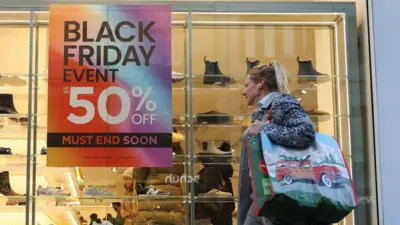We've updated our Privacy and Cookies Policy
We've made some important changes to our Privacy and Cookies Policy and we want you to know what this means for you and your data.
Archive film of Wales digitised for Britain on Film project
Image source, Britain on Film
Top Stories
Hours of archive films showing rarely seen footage of Wales' past have been digitised and made available to view.
The British Film Institute project reveals the nation's sights and sounds from a forgotten age.
One film by school children in Gwynedd in 1969 reflects on the flooding of Capel Celyn to build Tryweryn reservoir to provide water for Liverpool.
Newsreels, advertisements and home movies also provide insights into British life in the 20th Century.
Top Stories
Wales on film
- (1933): The first sound film believed to have been made and set in Wales featuring Dorothea Quarry and its slate workers who are "poised between heaven and earth"
- (1969): A documentary filmed by schoolchildren of the events up to and the flooding of Capel Celyn, including the last ever day at the village school
- (1960): Silent film showing life in Cardiff's former Tiger Bay, now Cardiff Bay, as a diverse community celebrating weddings and children enjoying trips and activities at the local Rainbow Club
- (1967): A tale of two employees at the Anglo Celtic Watch Company in Ystradgynlais, otherwise known as "The Tick Tock"
- (1969): A Ministry of Defence film showing the excavation of Babs, the racing car from Pendine Sands after it crashed and killed Wrexham's John Godfrey Parry Thomas in 1927 as he attempted to beat the land speed record
- Source:
Top Stories
Image source, Britain on Film
The National Screen and Sound Archive of Wales has teamed up with the BFI on the Britain on Film project.
Film development officer Iola Baines said: "There are some incredible pieces of Welsh film, rarely seen until now, which tell us so much about our shared history and our communities.
"Britain on Film has enabled us to unlock film heritage and to share this compelling footage with the wider public.
"Now we can all explore the landscapes and streets where we grew up, the communities of a previous generation and cultures and traditions that are now long gone."
Top Stories
More to explore
Most read
Content is not available








